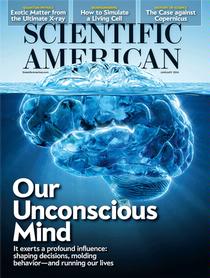Confessions of a Speciesist
Where do nonhuman mammals fit in our moral hierarchy?

The case for exploiting animals for food, clothing and entertainment often relies on our superior intelligence, language and self-awareness: the rights of the superior being trump those of the inferior. A poignant counterargument is Mark Devries’s Speciesism: The Movie, which I saw at the premiere in September 2013. The animal advocates who filled the Los Angeles theater cheered wildly for Princeton University ethicist Peter Singer. In the film, Singer and Devries argue that some animals have the mental upper hand over certain humans, such as infants, people in comas, and the severely mentally handicapped. The argument for our moral superiority thus breaks down, Devries told me: “The presumption that nonhuman animals’ interests are less important than human interests could be merely a prejudice— similar in kind to prejudices against groups of humans such as racism—termed speciesism.”
I guess I am a speciesist. I find few foods more pleasurable than a lean cut of meat. I relish the feel of leather. And I laughed out loud at the joke about the farmer who castrates his horses with two bricks: “Does it hurt?” “Not if you keep your thumbs out of the way.” I am also troubled by an analogy made by rights activists that animals are undergoing a “holocaust.” Historian Charles Patterson draws the analogy in his 2002 book Eternal Treblinka, and Devries makes visual reference to it by comparing the layout of factory-farm buildings to that of prisoner barracks at Auschwitz. The flaw in the analogy is in the motivation of the perpetrators. As someone who has written a book on the Holocaust (Denying History, University of California Press, revised edition, 2009), I see a vast moral gulf between farmers and Nazis. Even factory-farm corporate suits motivated by profits are still far down the moral ladder from Adolf Eichmann and Heinrich Himmler. There are no signs at factory farms reading “Arbeit Macht Frei.” (continue reading…)

